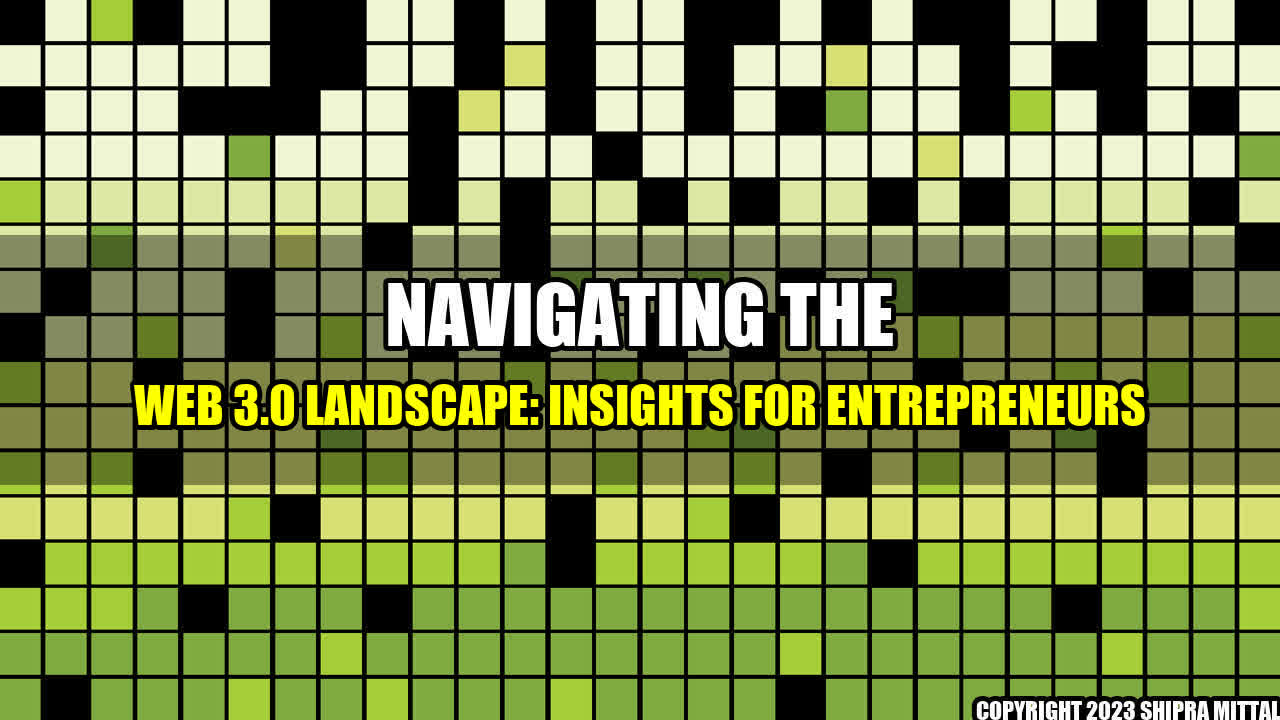Web 3.0, also known as the decentralized web or the semantic web, is the next phase of the internet. It involves a shift towards a more open and decentralized internet, where users have more control over their data and interactions. For entrepreneurs, this has significant implications for how they do business and interact with their audiences.
The Power of Decentralization
One of the key aspects of Web 3.0 is decentralization. Instead of relying on centralized platforms like Facebook or Google, web 3.0 technologies like blockchain and peer-to-peer networks allow for decentralized, trustless interactions between users.
For entrepreneurs, this means they can build applications and services that don't rely on centralized intermediaries. For example, a social media platform built on a decentralized network could give users more control over their data and interactions, while also enabling them to earn rewards for contributing to the network.
Decentralization also has implications for fundraising. Through initial coin offerings (ICOs) or token sales, entrepreneurs can raise funds for their projects directly from the community. This is a departure from traditional funding models, which often involve pitching to venture capitalists or angel investors.
The Importance of Interoperability
Another key aspect of Web 3.0 is interoperability. This means different applications and services can communicate and interact with each other, even if they're built on different platforms or networks.
For entrepreneurs, this means they can build applications that integrate with other products and services. This can create new opportunities for collaboration and innovation, and enable entrepreneurs to build products that are more useful and valuable to their users.
An example of this is the emerging trend of decentralized finance (DeFi). DeFi applications, built on blockchain networks like Ethereum, allow for interoperability between different financial products and services. This enables users to easily swap between different tokens, borrow and lend money, and interact with other financial products.
The Need for Trust and Transparency
Web 3.0 is also characterized by a focus on trust and transparency. This is due to the decentralized nature of the web, which makes it difficult for centralized authorities to control or manipulate information.
For entrepreneurs, this means they need to build products and services that prioritize transparency and trust. This can be achieved through practices like open-sourcing code, implementing strong security measures, and being transparent about how user data is collected and used.
One example of a company that has prioritized trust and transparency is DuckDuckGo, a privacy-focused search engine. DuckDuckGo has made a name for itself by not tracking user data and by being transparent about how search results are generated.
Conclusion
- Entrepreneurship in Web 3.0 requires a different mindset and approach from traditional business models.
- Decentralization, interoperability, and trust are key themes of Web 3.0, and entrepreneurs need to embrace these concepts in order to be successful.
- Web 3.0 creates new opportunities for entrepreneurs to innovate and build products that are more valuable and useful to their users.

Akash Mittal Tech Article
Share on Twitter Share on LinkedIn